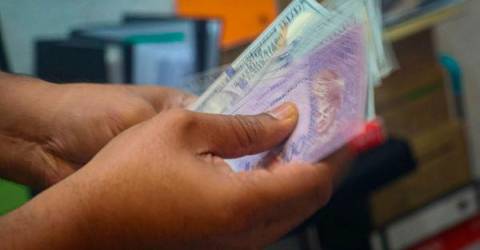KUALA LUMPUR: The ringgit’s depreciation has become a bane for Malaysian students pursuing their education abroad as it is now a burden for them and their families, said Heriot-Watt University Malaysia (HWUM) chief operating officer and registrar Janice Yew.
“The volatility of the ringgit and rising overseas costs have led to a situation in which some students have limited options to continue their education due to financial constraints.
“Moreover, the escalating expenses have forced some of them to abandon their aspirations of studying at global universities.”
Yew said all is not lost and amid the challenges, students could explore alternative pathways to higher education that offer increased flexibility. Doing this will ultimately enhance their post-graduation employability.
She emphasised the need for students to fortify their educational foundation locally before embarking on global adventures.
Yew said a recent QS global employer survey report showed 80% of employers sought graduates with international experience, adding that such experiences provide them with a competitive edge in today’s interconnected business landscape.
“The exposure gained while studying abroad fosters diverse thinking styles and experiences. It offers students a fresh perspective on life, aspirations and career paths.
“Advocating flexible study pathways does not imply a retreat from international experiences, but it is an approach to education that ensures students do not compromise the quality of their education with global exposure.”
She said this approach cultivates a responsible attitude towards education, especially in uncertain times, for students to thrive in an interconnected world.
Yew also said many universities have introduced flexible pathways for students, which allow them to complete their degrees entirely in Malaysia or opt to study abroad for part of their degree programme.
This approach tailors education to individual needs, providing the best global education option without sacrificing financial stability.
HWUM Go Global Inter-Campus Transfer Programme’s Accounting & Business Finance alumnus Niclole Chang Wen Wen, 26, said the value of such flexible pathways allowed her to gain new experiences.
“My parents saved substantial costs on my education through the programme as I did not have to be overseas for all three years of my degree programme.
“I had the option for a 2+1 programme, in which I did my first two years at the Malaysian campus and transferred to Edinburgh in the UK for my final year.”
Chang, who currently works in Edinburgh, said she was employed by KPMG UK in 2022 when she graduated and her experience working in the UK with different cultures and communities helped develop and grow opportunities for her as a global citizen.
“Many employers appreciate the diversity that international employees bring to the organisation. They recognise the different experiences and perspectives we bring, so I encourage other students to follow my path,” Chang said.
Yew said choosing universities with flexible pathways would help ease the financial burden and ensure a sustainable and adaptable educational journey for aspiring students.
“This approach recognises the economic challenges faced by many Malaysian students and offers a practical solution that is aligned with the current global economic landscape.”
She also urged Malaysian students and their parents to research additional support provided by universities, with some offering a range of scholarships, discounts, bursaries and financial assistance to help students pursue academic excellence.
“Education is a valuable investment that provides academic excellence and cultural exposure, personal growth, networking opportunities and the chance to learn from leading experts in various fields,” Yew said.


